Table of Contents
National Political parties are essential components of democratic societies, representing diverse ideologies and interests. They serve as platforms for citizens to engage in governance by electing leaders and influencing policy decisions. Through campaigns and debates, parties shape public discourse and contribute to the functioning of a robust democracy. However, their effectiveness relies on transparency, accountability, and a commitment to the welfare of the people they serve.
What are Political Parties?
- Political parties are organized groups that play an extreme role in democratic societies, serving as intermediaries between citizens and the government. They are platforms where individuals with similar political ideologies and beliefs unite to promote their shared agenda, influence public policies, and compete for power through elections. Political parties articulate the concerns and aspirations of various segments of society, helping to bridge the gap between the governed and the government.
- They also provide candidates for elections, allowing citizens to choose representatives who align with their values and priorities. Through debates, campaigns, and policy advocacy, political parties stimulate public discourse, contribute to the shaping of policies, and maintain the vitality of democratic processes.
Founder of Political Parties
- There is no one person who can be credited with founding political parties. Political parties have evolved over time, and there have been many different people who have played a role in their development.
- In the United States, the first political parties were formed in the early 1800s. The Federalist Party was founded by Alexander Hamilton, and the Democratic-Republican Party was founded by Thomas Jefferson. These two parties were based on different ideologies, and they competed for power for many years.
- In the United Kingdom, the first political parties were formed in the late 1700s. The Whig Party and the Tory Party were the two main parties, and they also competed for power for many years.
- Political parties have also been formed in many other countries around the world. The specific details of how these parties were formed vary from country to country, but they all have one thing in common: they are organized groups of people who share a common ideology or set of goals and who work together to achieve those goals through political action.
- So, while there is no one person who can be credited with founding political parties, they have played an important role in democracy for centuries. They provide a way for citizens to participate in the political process and to hold their elected officials accountable. They also play a vital role in shaping the laws and policies that affect our lives.
History of Political Parties in India
- The history of political parties in India is a long and complex one. The first political parties were formed in the early 19th century, during the British Raj. These parties were mostly based on regional or religious identities, and they competed for power with the British colonial government.
- In the early 20th century, a new generation of political leaders emerged who were committed to the independence of India. These leaders formed new parties, such as the Indian National Congress (INC) and the Muslim League, which were dedicated to the goal of ousting the British from India.
- The INC and the Muslim League played a major role in the independence movement, and they were the two main parties that emerged after India gained independence in 1947. The INC became the dominant party in India, and it ruled the country for most of the post-independence period.
- In recent decades, the Indian political landscape has become more fragmented, with the rise of new parties, such as the Bharatiya Janata Party (BJP), the Communist Party of India (Marxist), and the Shiv Sena. These parties have challenged the dominance of the INC, and they have contributed to the growing diversity of Indian politics.
- Today, India has a multi-party system, with a wide range of political parties competing for power. This diversity of parties is a reflection of the country’s rich history and its diverse population. It also ensures that there is a variety of voices represented in the Indian political system. Here are some of the key political parties in India:
- Indian National Congress (INC): The INC is the oldest political party in India. It was founded in 1885, and it has played a major role in the independence movement and the post-independence development of India. The INC is a center-left party that is committed to secularism, democracy, and social justice.
- Bharatiya Janata Party (BJP): The BJP is the largest political party in India. It was founded in 1980, and it is a right-wing party that is committed to Hindu nationalism. The BJP has been in power at the national level since 2014.
- Communist Party of India (Marxist) (CPI(M)): The CPI(M) is a communist party that was founded in 1964. It is the largest communist party in India, and it is based in the state of West Bengal. The CPI(M) is committed to the overthrow of capitalism and the establishment of a socialist state.
- Shiv Sena: The Shiv Sena is a regional party that was founded in 1966. It is based in the state of Maharashtra, and it is committed to the interests of the Marathi-speaking people. The Shiv Sena is known for its aggressive and populist politics.
These are just a few of the key political parties in India. The Indian political landscape is constantly evolving, and new parties are emerging all the time. It will be interesting to see how the Indian political system develops in the years to come.
Political Parties in India
- India’s multi-party system showcases its diverse history and population, ensuring a rich tapestry of voices in its political landscape. The Bharatiya Janata Party (BJP) and Indian National Congress (INC) are the largest, with BJP promoting Hindu nationalism and INC championing secularism, democracy, and social justice.
- Other major political parties in India include the Communist Party of India (Marxist) (CPI(M)), the Shiv Sena, the All India Trinamool Congress (TMC), and the Nationalist Congress Party (NCP). The CPI(M) is a communist party that is committed to the overthrow of capitalism and the establishment of a socialist state.
- The Shiv Sena is a regional party that is based in the state of Maharashtra and is committed to the interests of the Marathi-speaking people. The TMC is a regional party that is based in the state of West Bengal and is led by Mamata Banerjee. The NCP is a regional party that is based in the state of Maharashtra and is led by Sharad Pawar.
- Numerous smaller parties represent various interests, like regional, religious, and social concerns. As India’s political sphere evolves, new parties continue to emerge, shaping the nation’s dynamic political landscape.
How many Political Parties in India
There are currently six national political parties in India:
- Bharatiya Janata Party (BJP)
- Indian National Congress (INC)
- Communist Party of India (Marxist) (CPI(M))
- Nationalist Congress Party (NCP)
- All India Trinamool Congress (TMC)
- Aam Aadmi Party (AAP)
Political Parties in India with Symbols
Political Parties in India with Symbols: Political parties in India are not only defined by their ideologies and agendas but also by their distinct symbols. These symbols play a crucial role in helping illiterate voters identify and associate with a particular party on the ballot. The Election Commission of India assigns symbols to registered political parties, ensuring that no two parties have the same symbol to avoid confusion.
| Political Parties in India with Symbols | |
| Political Party | Symbol |
| Bharatiya Janata Party (BJP) | Lotus |
| Indian National Congress (INC) | Hand |
| Communist Party of India (Marxist) (CPI(M)) | Hammer, Sickle, and Star |
| Shiv Sena | Bow and Arrow |
| All India Trinamool Congress (TMC) | Flowers and Grass |
| Nationalist Congress Party (NCP) | Clock |
| Bahujan Samaj Party (BSP) | Elephant |
| Aam Aadmi Party (AAP) | Broom |
| Dravida Munnetra Kazhagam (DMK) | Rising Sun |
| Biju Janata Dal (BJD) | Conch |
| Samajwadi Party (SP) | Bicycle |
| Telugu Desam Party (TDP) | Bicycle |
| Janata Dal (United) (JD(U)) | Arrow |
| Rashtriya Janata Dal (RJD) | Hurricane Lamp |
| Lok Janshakti Party (LJP) | Bungalow |
| Indian Union Muslim League (IUML) | Hand Fan |
These symbols become iconic representations of the respective parties and are used extensively in campaign materials, rallies, and political messaging. The symbols provide a visual connection for voters, making the democratic process more accessible and inclusive.
Role of Political Parties in India
Political parties play a vital role in Indian democracy. They are essential for the smooth functioning of the government and for ensuring that the voices of the people are heard. Here are some of the key roles that political parties play in India:
- Contesting elections: Political parties nominate candidates to run for office in elections. This allows voters to choose from a variety of candidates with different views on the issues.
- Forming governments: The political party that wins the most seats in an election usually forms the government. The government is responsible for making laws and policies that affect the lives of all citizens.
- Legislating: Political parties introduce and debate legislation in Parliament or Congress. They also work to ensure that the laws that are passed are in line with their party’s ideology.
- Providing oversight: Political parties hold the government accountable for its actions. They investigate allegations of corruption and malfeasance, and they question the government’s policies.
- Organizing and mobilizing voters: Political parties register voters, get out the vote, and educate voters about the issues. They also provide a platform for citizens to voice their concerns and get involved in the political process.
- Promoting democracy: Political parties educate citizens about democracy and encourage them to participate in the political process. They also help to resolve conflicts and to build consensus among different groups in society.
National Political Parties in India
There are 6 National Political Parties in India, as recognized by the Election Commission of India (ECI). They are:
- Bharatiya Janata Party (BJP): The BJP is the largest political party in India. It is a right-wing party that is committed to Hindu nationalism. The BJP has been in power at the national level since 2014.
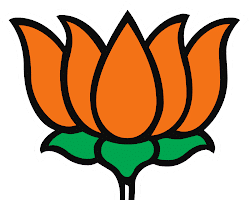
- Indian National Congress (INC): The INC is the oldest political party in India. It was founded in 1885, and it has played a major role in the independence movement and the post-independence development of India. The INC is a center-left party that is committed to secularism, democracy, and social justice.
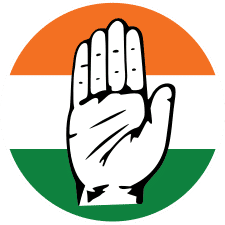
- Communist Party of India (Marxist) (CPI(M)): The CPI(M) is a communist party that was founded in 1964. It is the largest communist party in India, and it is based in the state of West Bengal. The CPI(M) is committed to the overthrow of capitalism and the establishment of a socialist state.
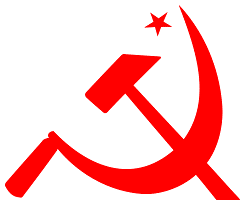
- Nationalist Congress Party (NCP): The NCP is a regional party that is based in the state of Maharashtra. It is led by Sharad Pawar. The NCP is a secular party that is committed to democracy and social justice.
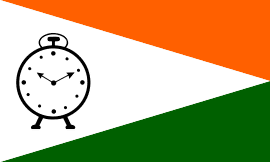
- All India Trinamool Congress (TMC): The TMC is a regional party that is based in the state of West Bengal. It is led by Mamata Banerjee. The TMC is a secular party that is committed to democracy and social justice.
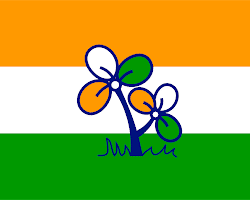
- Aam Aadmi Party (AAP): The AAP is a regional party that is based in the state of Delhi. It is led by Arvind Kejriwal. The AAP is a secular party that is committed to democracy and social justice.
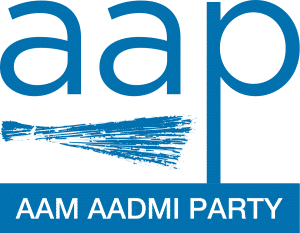
- In addition to these national parties, there are also a number of state parties in India. These parties are recognized by the ECI if they have won at least 4 seats in the Lok Sabha or the Rajya Sabha, or if they have won 2% of the total votes polled in any state in the last general election. There are currently 54 state parties in India.
- The Indian political system is constantly evolving, and new parties are emerging all the time. It will be interesting to see how the Indian political system develops in the years to come.
Why Do we need Political Parties?
Political parties are essential for democracy. They provide a way for citizens to participate in the political process and to hold their elected officials accountable. They also play a vital role in shaping the laws and policies that affect our lives. Here are some of the reasons why we need political parties:
- To represent the interests of different groups of people: Political parties represent the interests of different groups of people, such as workers, farmers, women, and minorities. This allows these groups to have a voice in government and to ensure that their concerns are addressed.
- To provide a platform for debate and discussion: Political parties provide a platform for debate and discussion about important issues. This allows citizens to learn about different perspectives and make informed decisions about who to vote for.
- To organize and mobilize voters: Political parties organize and mobilize voters to get out the vote and to support their candidates. This is essential for ensuring that elections are fair and that the voices of all citizens are heard.
- To form governments: Political parties form governments by winning elections. This allows them to implement their policies and make decisions about how the country is run.
- To hold the government accountable: Political parties hold the government accountable by scrutinizing its policies and by investigating allegations of corruption. This ensures that the government is responsive to the needs of the people and that it does not abuse its power.
In conclusion, political parties are essential for democracy. They provide a way for citizens to participate in the political process and to hold their elected officials accountable. They also play a vital role in shaping the laws and policies that affect our lives.
Party System in India
Party System in India: There are three types of party systems in India.
- One-Party System: In this setup, a single party holds total power, suppressing opposition and controlling governance, often seen in authoritarian regimes.
- Two-Party System: Dominated by two major parties, this system provides clear electoral choices, ensuring stability but possibly sidelining smaller parties.
- Multi-Party System: Characterized by multiple parties, coalitions form governments when no single party secures a majority, promoting diversity but potentially leading to instability.
| Relatable Articles | |
| Emergency in India | Centre State Relations |
| Special Provisions Act | Cooperative Societies |

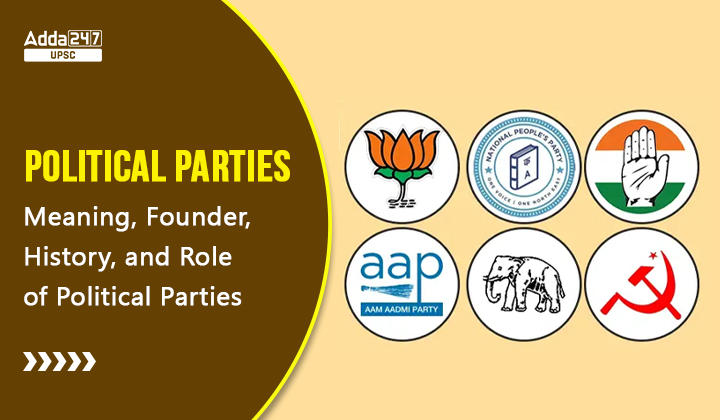


 TSPSC Group 1 Question Paper 2024, Downl...
TSPSC Group 1 Question Paper 2024, Downl...
 TSPSC Group 1 Answer key 2024 Out, Downl...
TSPSC Group 1 Answer key 2024 Out, Downl...
 UPSC Prelims 2024 Question Paper, Downlo...
UPSC Prelims 2024 Question Paper, Downlo...
